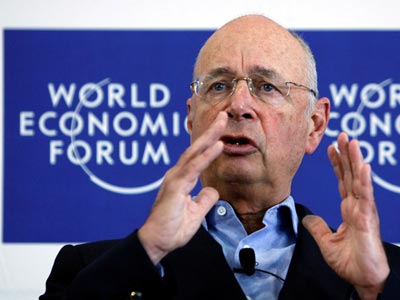Media Credibility Index launched in Pakistan
Media Credibility Index launched in Pakistan.
Media Credibility Index aims to assess current affairs programming; ranking content and delivery mechanisms across six pillars of credibility.
The CredibilityLab at Mishal Pakistan launched the Media Credibility Index (MCI), an initiative started in January 2013 in collaboration with Pakistan Coalition for Ethical Journalism, leading research and academic institutions, and media practitioners. The launch ceremony was held in Islamabad where prominent media professionals, representatives of regulatory bodies, media development organizations and members of the civil society participated. The Index focuses on the relative credibility and believability of various media channels through which content is created.
Addressing the participants, Founder and Director, Ethical Journalism Network, Aidan White said that launch of the Media Credibility Index is a landmark moment for media accountability in Pakistan. In a country where people are overwhelmed by a torrent of information on all sides, and where corruption lurks in all areas of public life, the greatest challenge facing journalists and media professionals is to produce information that is reliable, useful and above all truthful.
The MCI provides fundamentals for analyzing media discourse in the country. By using benchmarks provided by professionals at national and international level, the MCI provides an opportunity to examine how the news analysis and commentary of high profile news anchors contribute to better understanding of complex issues in Pakistan’s robust landscape of journalism and politics, he further added.
Speaking at on the occasion, Dr. Nazir Saeed, Federal Secretary for Information, Broadcasting and National Heritage said, “Television has an overwhelming impact on peoples’ decision-making power. The significance of the Media Credibility Index is in its use and ability to highlight content that can empower both the newsmakers and the information seekers; enabling them to create an effective knowledge ecosystem in the country. MCI has the potential of becoming the source for an informed decision making tool in public policy debate. MCI will promote ethical content practices in the country, information that tells stories not just about the powerful, but also about the powerless, and not just about the life of the decision makers, but also about issues concerning the masses”.
“I feel proud of the fact that the Media Credibility Index has been launched in Pakistan and can be a benchmark for other countries in the world for promoting, balanced, ethical and fair journalism practices”, said Dr. Nazir Saeed.
Center for International Media Ethics (CIME) Ambassador for Pakistan, Puruesh Chaudhary said that the index has been developed after an extensive examination of media laws, ethical principals drafted by different media groups, compliance regulations formulated by regulatory bodies and journalistic organizations. The MCI will explore the state of media in Pakistan against six indicators and 20 sub-indices. The results are currently being published on a weekly basis on the Media Credibility Index website as well.
Senior journalist and founder, Pakistan Coalition for Ethical Journalism, Muhammad Ziauddin said that Mishal has incorporated more than thirty code of conducts, principles of ethical journalism, which include currently prevalent seven national code of conducts and twenty four international code of ethics from international regulatory bodies, which have been agreed upon across the globe. He further said, that the codes of ethics framed by the Pakistani media groups have also being included within the index, these entail Jang group’s Geo Asool, Dunya’s code of ethics, Express group’s journalism code of conduct and Dawn Group’s principles and code of conduct.
After reviewing the principles of journalism and codes of ethics for journalists; six media credibility indicators with 20 sub-indices have been developed in order to assess the media discourse and credibility of current affairs anchors in Pakistan. This extensive study entails thirty-five current affairs programming of the mainstream Pakistani news channels. The Credibility of the anchors and content discourse is being assessed on; Professional Competence, Ethics, Accuracy, Balance, Timeliness and Fairness.
Chief Executive Officer, Mishal Pakistan, Amir Jahangir said the CredibilityLab, through its activities will further strengthen the Triple Helix concept, which relies on three main ideas: (1) a more prominent role for the University in creating new though and research processes, bringing them on par with the Industry and Government that form the basis of a Knowledge Society; (2) a movement toward collaborative relationships among the three major institutional spheres, in which information and knowledge policy is increasingly an outcome of interaction rather than a prescription from the Government; (3) in addition to fulfilling their traditional functions, each institutional sphere also “takes the role of the ‘other’ performing new roles as well as their traditional function.
The CredibilityLab at Mishal will be publishing its research on the state of media and competitiveness in Pakistan in collaboration with its partners. The MCI research has been one of the few initiatives in Pakistan, where research work has been collaborated with eleven academic partners in the country, including University of the Punjab, International Islamic University, Fatima Jinnah Women University, Lahore College for Women University, University of Gujrat, Government College University Faisalabad, Islamia University Bhawalpur, University of Balouchistan, Greenwich University and Bharia University.
Mishal Pakistan is the partner institute of the Global Competitiveness and Benchmarking Networks, World Economic Forum. Mishal assists the forum in creating the soft-data on Pakistan, identifying Pakistan’s competitiveness challenges. Mishal has also launched Pakistan’s first journalism awards “AGAHI Awards” on the framework designed jointly with the Center for International Media Ethics and UNESCO’s Media Development Indicators.
As a partner institute Mishal has been working closely with the World Economic Forum on measuring Pakistan’s performance on multiple international indices and reports i.e. Global Competitiveness Index, Global Gender Gap Index, Global Enabling Trade Index, Global Information Technology Report – Network Readiness Index, Financial Development Index and the Travel and Tourism Competitiveness Index.
For more information on the Media Credibility Index (MCI) please visit: www.mediacredibilityindex.com
















































